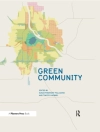The aim of this 2-volume book is to highlight how Sustainability Science approaches can help solve some of the pervasive challenges that Africa faces. The volumes collect a number of local case studies throughout Africa that adopt transdisciplinary and problem-oriented research approaches using methodologies from the natural and the social sciences. These are put into perspective with chapters that introduce key sustainability challenges such using a regional focus. Through this multi-scale and inter/transdisciplinary approach the proposed volume will provide an authoritative source that will pack in a single volume a large amount of information on how Sustainability Science approaches sustainability challenges in African contexts. While there have been general books about sustainability science, none has had a strong African focus. As a result the 2-volume set fills a major gap in the Sustainability Science scholarship.
This volume sets the stage for the series. Part I introduces key sustainability challenges in Africa. Parts II‐III highlights specific case studies related to these challenges from West and Central Africa.
Table of Content
Sustainability challenges in Sub-Saharan Africa in the context of the Sustainable Development Goals (SDGs).- 2. Enabling sustainable bioenergy transitions in Sub-Saharan Africa: strategic issues for achieving climate-compatible development.- 3. Linking industrial crop production and food security in sub-Saharan Africa: local, national and continental perspectives.- Large-scale land acquisitions in Sub-Saharan Africa and corporate social responsibility (CSR): Insights from Italian investments.- Determinants of foreign investment and international aid for meeting the Sustainable Development Goals in Africa: a visual cognitive review of the literature.- Perceived community resilience to floods and droughts induced by climate change in semi-arid Ghana.- Linking rural livelihoods and fuelwood demand from mangroves and upland forests in the coastal region of Guinea.- Strategic partnerships between universities and non-academic institutions for sustainability and innovation: Insights fromthe University of Ghana.- Long-term vegetation change in central Africa: the need for an integrated management framework for forests and savannas.- Forest-agriculture in the Center-South region of Cameroon: how does traditional knowledge inform integrated management approaches?.












